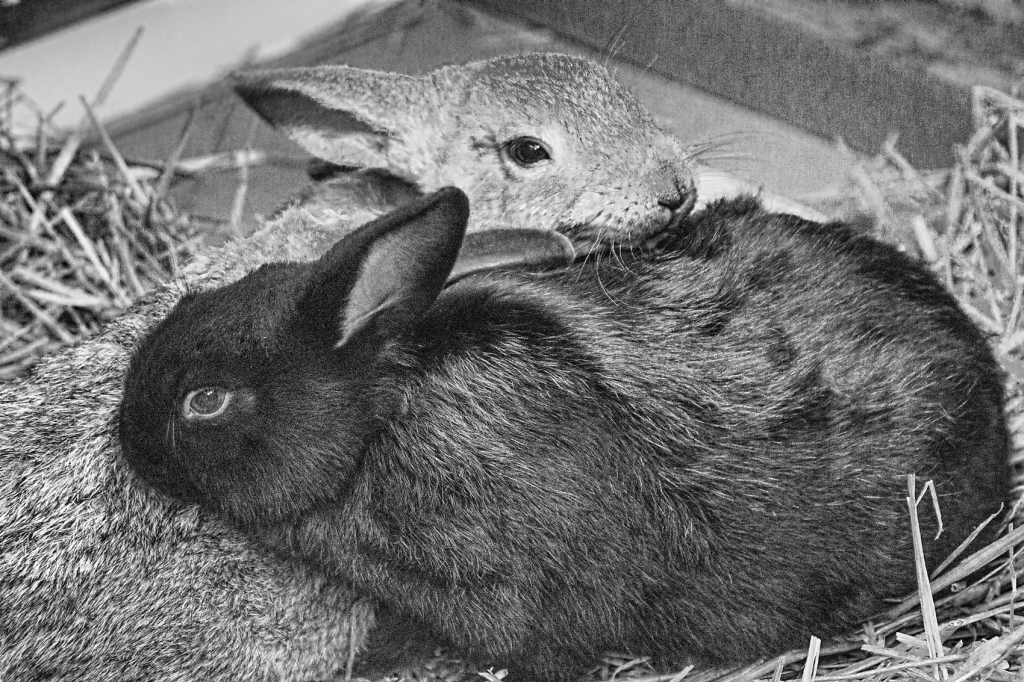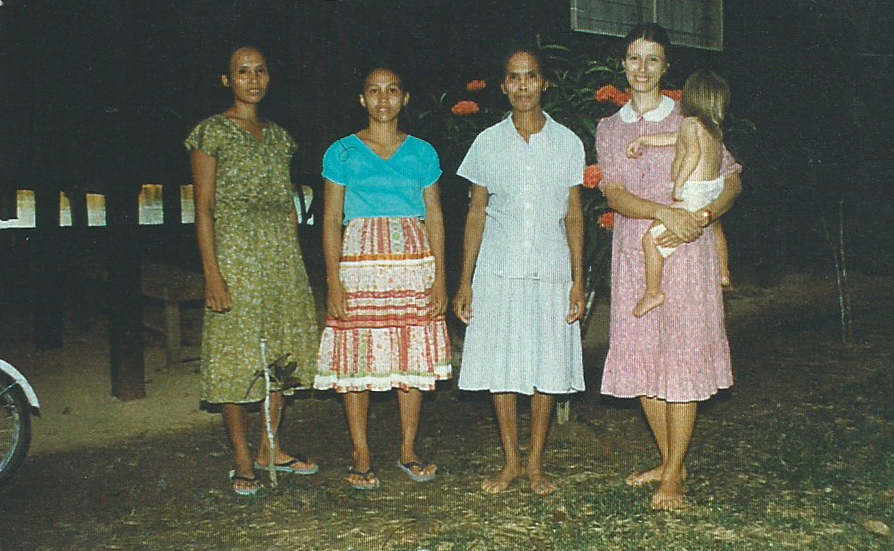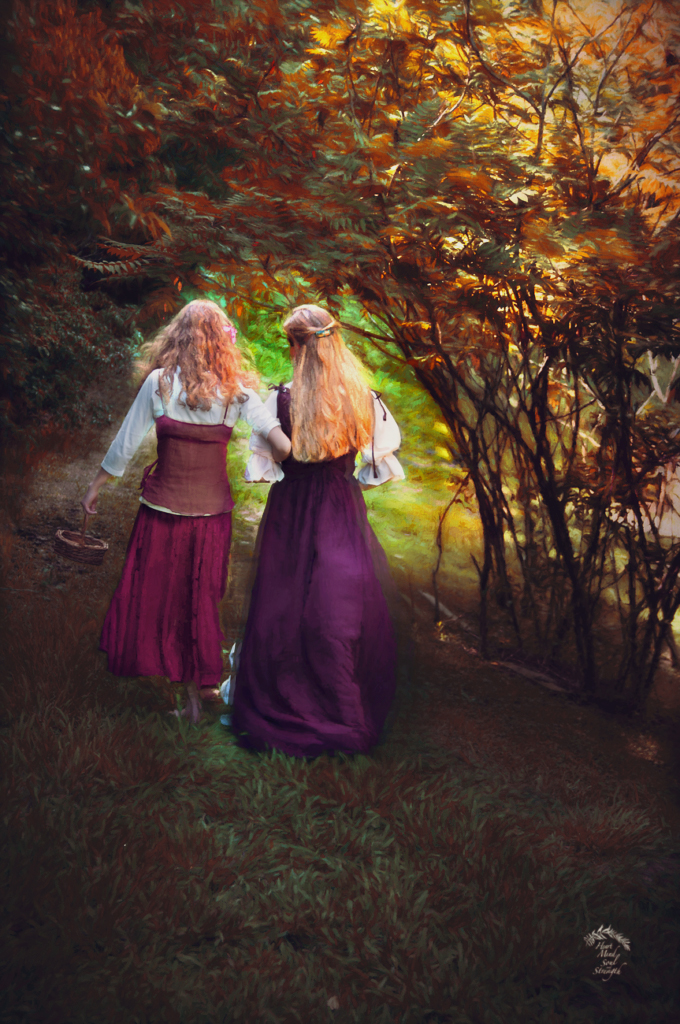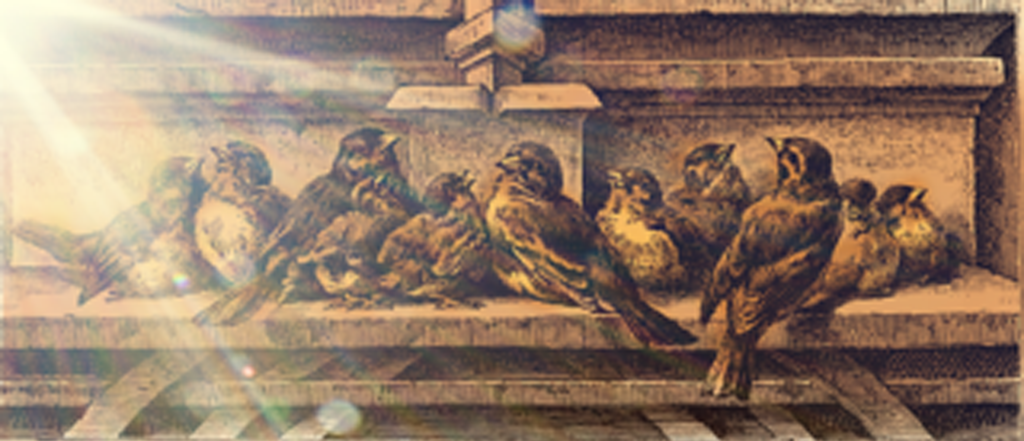 Several of our friends grew up in a cult. A big part of their lives was the close-knit community. They were taught to help others in need, to pray for the sick ones, to stick together, to celebrate together. The teens were encouraged to only marry within the cult and to that end there were weekly dances. Once married (in their late teens), the new husbands were employed by cult members with living-wage jobs so the young wives could stay home and raise children. Having been taught by example a good work ethic, most of the men were successful in their careers. The wives with young children would get together often to offset the loneliness of staying home caring for kids. Their lives were knit closely together. Although our friends have left the erroneous teachings of that cult and are happy to be on the outside, they remember the feeling of community was one benefit of the cult.
Several of our friends grew up in a cult. A big part of their lives was the close-knit community. They were taught to help others in need, to pray for the sick ones, to stick together, to celebrate together. The teens were encouraged to only marry within the cult and to that end there were weekly dances. Once married (in their late teens), the new husbands were employed by cult members with living-wage jobs so the young wives could stay home and raise children. Having been taught by example a good work ethic, most of the men were successful in their careers. The wives with young children would get together often to offset the loneliness of staying home caring for kids. Their lives were knit closely together. Although our friends have left the erroneous teachings of that cult and are happy to be on the outside, they remember the feeling of community was one benefit of the cult.
Growing up, I observed the Amish community in my area. They, also were tight-knit, hard-working, helped each other, and were dedicated to their families. I recently watched a documentary on people who had abandoned their Amish upbringing and all of them felt deeply the loss of family and community when they entered the larger culture.
 When we lived in the jungles of Borneo, I also observed a strong community. Groups of women would go to the river together to wash their clothes, dishes, and children. They talked and laughed while getting their chores done. I was envious. I wasn’t envious, however, of their custom of living in one longhouse with each family’s living quarters separated only by thinly beaten bark walls that didn’t go to the ceiling. Their community was characterized by generosity. They didn’t put an emphasis on ownership of material things. But what they had they shared and willingly lent when another needed them. We were grateful that our children quickly learned this mindset of sharing what they had with the other children in the community. I had to learn not to be alarmed if a neighbor child came to our yard and rode off on our son’s bike! I came to understand that it would be returned in due time.
When we lived in the jungles of Borneo, I also observed a strong community. Groups of women would go to the river together to wash their clothes, dishes, and children. They talked and laughed while getting their chores done. I was envious. I wasn’t envious, however, of their custom of living in one longhouse with each family’s living quarters separated only by thinly beaten bark walls that didn’t go to the ceiling. Their community was characterized by generosity. They didn’t put an emphasis on ownership of material things. But what they had they shared and willingly lent when another needed them. We were grateful that our children quickly learned this mindset of sharing what they had with the other children in the community. I had to learn not to be alarmed if a neighbor child came to our yard and rode off on our son’s bike! I came to understand that it would be returned in due time.
 Belonging, feeling part of a group, helping others, knowing others care, knowing others will come to your aid, knowing others feel your pain and your joys, being in it together, and being like-minded in a community of faith is a powerful force for happiness and strength. We aren’t happy or whole alone. From Adam to the Jewish people to the first believers in Jesus, it’s clear that God didn’t intend for us to be alone. We are completed, we are comforted, we’re encouraged when we’re in a faith community.
Belonging, feeling part of a group, helping others, knowing others care, knowing others will come to your aid, knowing others feel your pain and your joys, being in it together, and being like-minded in a community of faith is a powerful force for happiness and strength. We aren’t happy or whole alone. From Adam to the Jewish people to the first believers in Jesus, it’s clear that God didn’t intend for us to be alone. We are completed, we are comforted, we’re encouraged when we’re in a faith community.
“It isn’t good for the man to be alone,” God speaking about Adam in Genesis 2 just before he created Eve.
Later, God gave his people rules for living together happily in community. The second five of the Ten Commandments God gave Moses on Mt. Sinai were rules for relationships with others. After God gave his people their own homeland, he commanded Israel, to come together four times a year. There were to come from all over the country to the temple in Jerusalem for worship and fellowship and eating together. He also gave them guidelines for how to live together in harmony in their everyday lives. They were to leave part of their crops for the poor to pick, they were to be kind to foreigners, they were to provide for the priests who taught and who served at the temple. In so many ways, God taught them to look out for others and live together in healthy relationships.
The first believers in Jesus got to know him by living with him as he traveled from place to place teaching and healing. After he went back to Heaven, they continued meeting together for fellowship and worship as their group grew into many thousands. A church council decided on ways to help so many people live together in harmony. Those who were able contributed unselfishly for the good of all. Widows were cared for, the poor provided for, and all this was carefully overseen by groups of leaders (not just one person in control).
 Right up to our present time, God’s plan is for people of faith to spend time together in worship, learning, fellowshipping, sharing, and caring for each other. But we have drifted from this ideal. The perfect storm of selfishness with our time and resources, fear of whatever the current virus is, busyness, travel, entertainment, and other priorities have combined to cut us off from our faith communities. Our schedules are so full that we don’t have time to check in with each other, pray for each other, eat together, or relax together.
Right up to our present time, God’s plan is for people of faith to spend time together in worship, learning, fellowshipping, sharing, and caring for each other. But we have drifted from this ideal. The perfect storm of selfishness with our time and resources, fear of whatever the current virus is, busyness, travel, entertainment, and other priorities have combined to cut us off from our faith communities. Our schedules are so full that we don’t have time to check in with each other, pray for each other, eat together, or relax together.
Dear Husband and I have been very blessed with faith communities who truly cared for us and hopefully we, in turn, did our part. We were reminiscing last night about the times others met our needs in ways we’ll never cease to be grateful for.
One winter when Husband was in college, he went with an instructor and another student to Central America on an assignment. While he was gone our 3-week old baby became seriously ill and was hospitalized in NICU in another state. He rushed back to the US to be at the hospital with us. Eventually, by God’s mercy, our baby improved and was released from the hospital. We had a long, harrowing trip home finally arriving late at night. We had been dreading taking a weak infant into our cold house which had been empty for weeks. Since we heated with wood, it would be a while until Husband could get it warmed up. But to our surprise and immense relief, the house was toasty warm with a welcome fire. There was food in the fridge and even our bed was warm from an electric mattress pad that had been placed under clean sheets. Someone had anticipated our needs and took the time to make our homecoming easy. Nearly five decades later and separated by a continent and an ocean, the couple who cared for us are still our dear friends.
 Crisis times are an important opportunity for us to reach out with loving care, but everyday life is also an opportunity to express care. Just taking a few minutes to text or call someone to connect can be a lift for a widow, a mother at home with littles, grandchildren, the elderly, or someone isolated because of health concerns. All of us want to be loved and time given to relationships is proof of love. There are also many opportunities to show love in action: a meal taken, a chore done, a need met, a gift, an invitation to dinner, a meet-up for coffee, errand ran, ride given.
Crisis times are an important opportunity for us to reach out with loving care, but everyday life is also an opportunity to express care. Just taking a few minutes to text or call someone to connect can be a lift for a widow, a mother at home with littles, grandchildren, the elderly, or someone isolated because of health concerns. All of us want to be loved and time given to relationships is proof of love. There are also many opportunities to show love in action: a meal taken, a chore done, a need met, a gift, an invitation to dinner, a meet-up for coffee, errand ran, ride given.
“ Therefore, whenever we have the opportunity, we should do good to everyone—especially to those in the family of faith.” Galatians 6:10
Since community is God’s plan for us, what can you do this week to connect with love?
I was keenly aware of my need for the community of other young and older Moms at our church….I actually had the “feeling’ of RUNNING TO the ladies’ Bible Study where I was nurtured and encouraged! Always have looked for that kind of fellowship on the way through my life as a single Mom and later…alone. How depressing the rules have been for many who have no such fellowship now!
You were/are wise, dear Mary, for seeking fellowship. It’s what we’re meant for! Hugs, L